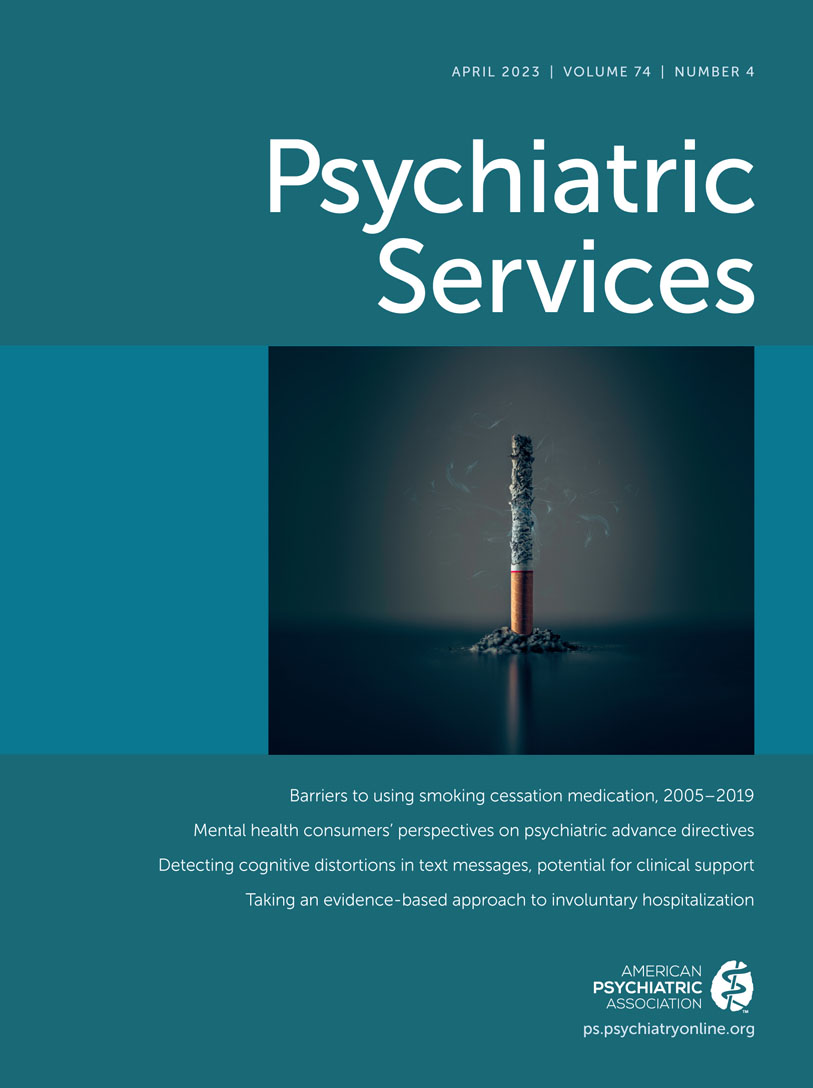Psychiatric Advance Directives: A Call for Humanization
In recent years, the rise of suicide deaths, overdoses, emergency department boarding, criminalization of mental health, and homelessness in the United States has led policy makers, funders, family members, and people with lived experience to seek solutions. Some have called for policies to expand the use of involuntary treatment and reinstitutionalization in hospitals, jails, and prisons, leaving many in the social justice, disability rights, and lived experience communities outraged and calling for trauma-based, culturally relevant alternatives to dehumanizing carceral care. With the authors of this commentary being a U.S. psychiatric survivor, a clinical social worker, and a public defender who partner to advance mental health recovery, we hope that the conversation on psychiatric advance directives (PADs) will inspire broader conversations in the United States about quality of care, human rights, trauma, cultural relevance, therapeutic alliance, and recovery.
The use of advance directives, wellness self-management, and supported decision making are commonplace in the U.S. medical system. Primary and preventive medicine, cardiology, oncology, and palliative care provide education to aid patients in taking care of their own health and exercising their right to receive or decline treatment. Such guidance promotes bodily autonomy and preserves dignity. The principles behind these practices are key to ethical practice. However, during psychiatric treatment, these same principles frequently are not followed. Rather, the presumptive expertise and power lie within the treatment community and not with the patient. The expectation is treatment adherence, often with legal consequences for not doing so. Underscoring this difference, several themes emerged from Braun et al.’s review in this issue (1), including service users’ desire for voice, autonomy, partnership, and support to create a PAD and fear that treatment providers will override the PAD during a mental health crisis.
On the basis of decades of our own collective personal and professional experience and on the article’s findings, we ask four questions: Why has the use of PADs and joint crisis plans evolved so differently in different countries? Why is there such a discrepancy in the care of people with mental illness in comparison with general medical illness in the United States? Would the widespread adoption of legally binding advance directives influence the paradigm of psychiatric treatment? And, when coupled with voluntary, healing alternatives, could the use of PADs increase wellness, healing, and recovery of people who have mental illness? These questions are timely and relevant given the rise in both the use of involuntary commitment in the United States and demands for additional use of coercion to solve a growing mental health crisis that is often rooted in social issues of trauma, poverty, marginalization, and racism.
As Braun et al. highlighted in their article, “service users are highly interested in PADs and regard them as tools to increase their autonomy and involvement in their own care,” with numerous personal, treatment, and social benefits. Despite this interest, our experience has been that emergency department, inpatient hospital, and outpatient providers frequently fail to support their patients in developing a PAD. This institutional resistance has been expressed as risk aversion, concerns about potential litigation, a belief that clients lack insight regarding their illness and cannot make their own treatment decisions, concerns about PAD management, and personnel costs. Some of these fears are understandable, but the findings in the article suggest otherwise, leading us to question whether concerns could be alleviated if clinical training examined risks and benefits of PADs, implementation of PADs, and clinicians’ responsibility to uphold and restore patients’ rights with involuntary commitment proceedings. Done well, PADs are an invaluable resource in guiding treatment decisions, rooted in the person’s preferences and historical experience of what has been helpful and harmful. PADs also help with crisis prevention, planning, therapeutic alliance, and navigation of scarce treatment.
As emergency departments continue to be burdened with “boarding” youths and adults with mental health challenges, U.S. Department of Justice litigation and settlements with states for Olmstead violations persist. As loud dissent from civil, disability, and human rights advocates challenges law enforcement’s use of handcuffs and confinement as “treatment,” perhaps tools such as PADs can drive procedural, policy, and practice change, aligning mental health and general medical care and upholding human rights.
1. : Mental health service users’ perspectives on psychiatric advance directives: a systematic review. Psychiatr Serv 2023; 74:381–392 Abstract, Google Scholar



